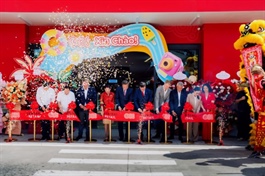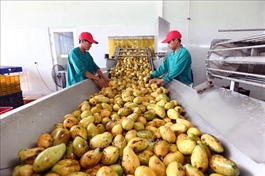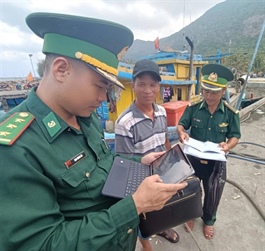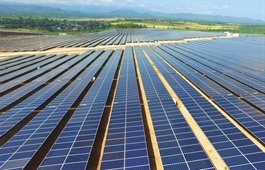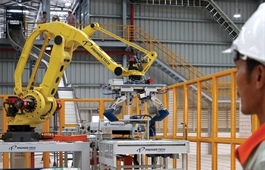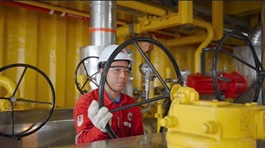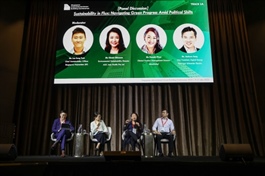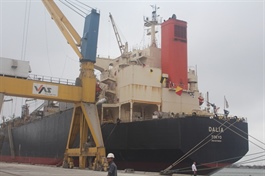Inconsistencies leave quality seafood stranded: VASEP
Inconsistencies leave quality seafood stranded: VASEP
A report has been sent to Deputy Minister of Justice Nguyễn Thanh Tú, highlighting several regulatory inconsistencies that are placing a considerable burden on seafood enterprises.
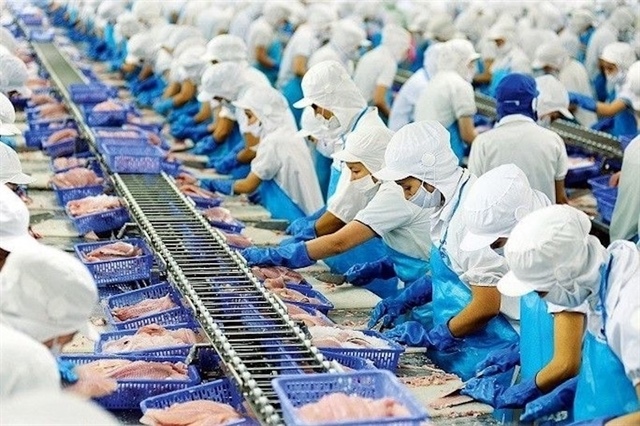
Workers at a seafood processing plant in Đồng Tháp Province. — VNA/VNS Photo |
A legal loophole concerning the 'minimum required performance limit (MRPL)' of equipment used to detect banned antibiotics in seafood has led to a troubling paradox - many products that qualify for export to the EU cannot be sold within Việt Nam.
The Vietnam Association of Seafood Exporters and Producers (VASEP) recently submitted a report to Deputy Minister of Justice Nguyễn Thanh Tú, highlighting several regulatory inconsistencies that are placing a considerable burden on seafood enterprises. The issues are grouped into three main categories: conflicting or overlapping regulations; rules that impose high compliance costs and restrict innovation; and vague, impractical, or unreasonable provisions.
One notable issue involves value-added tax (VAT) regulations for seafood by-products. According to VASEP, current guidance from local tax authorities allows unprocessed or only lightly processed scraps and by-products to be exempt from VAT declarations. However, a 10 per cent VAT rate is still applied to by-products from processed items, such as boiled shrimp heads, creating a clear inconsistency.
This contradicts Circular 83/2014/TT-BTC, which classifies items like shrimp heads, shrimp shells, fish heads, and fish bones as unprocessed or minimally processed goods, regardless of their origin from raw or cooked products, and exempts them from VAT declaration during commercial transactions.
This inconsistency has real operational consequences. Businesses must allocate extra manpower and resources to separate and invoice the same types of by-products based on their production source. As VASEP notes, this also leads to friction with clients who are unwilling to accept two different tax rates for what is essentially the same product.
To resolve the issue, VASEP is calling on the Ministry of Finance to issue unified guidance. The association proposes that all seafood by-products, whether derived from raw or processed goods, be exempt from VAT declaration at the commercial stage, so long as they have not been processed into other products and have only undergone minimal preparation.
Beyond tax concerns, VASEP also raises alarm over broader regulations that increase costs and restrict innovation. For example, Decree 37/2024/NĐ-CP on wild-caught seafood sets minimum catch sizes for certain aquatic species in natural waters that do not align with international practices, creating difficulties for both fishers and businesses. Another rule prohibits mixing imported and domestic seafood in the same export shipment—yet fails to define this restriction clearly or justify it in the context of global norms.
The most pressing issue, according to VASEP, is the legal vacuum surrounding MRPL thresholds in banned antibiotic testing. Without specific guidance, Vietnamese authorities reject seafood products that meet stringent EU standards, preventing their sale on the domestic market despite their safety and export eligibility.
This regulatory gap is further compounded by the absence of clear rules on changing a product’s intended use. Currently, businesses lack direction on how to shift imported seafood from export-oriented processing to domestic consumption, or vice versa, leaving them stuck in legal limbo.
- 09:36 17/07/2025







